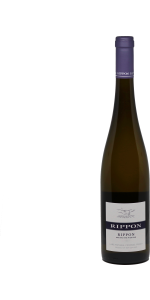
Description
Picked by hand in small 10kg bins allowing the fruit to arrive intact, the Riesling is gently crushed by foot and left to macerate on skins overnight. The fruit was then whole bunch pressed and settled by gravity overnight before being run into horizontal stainless steel tank, retaining fine lees
Awards
95 pts James Suckling
93 pts Vinous by Antonio Galloni
94 pts The Wine Advocate Points
Certifications
Alcohol
12.5%
Analytical data
semi-dry
Vineyard
Rippon aims to foster products that are a true and accurate reflection of their site; climate, aspect, culture and soils.
With their ability to metabolise minerals from the soil and release soluble exudates available to plants, it is the microflora of the soil which allows the vine to be receptive and reflective of the site. Our true craft therefore is to work the land in such a way as to maintain a healthy, natural and living soil.
When making operational decisions on the land, we seek to consider what effect our actions with have on soil biota. Whilst with farming it is impossible to allow the land to carry out all its natural processes (our farming aspirations are ultimately in conflict with the land’s natural state), many compromises are be made.
At Rippon, we work to achieve our goals as winegrowers in constant consideration of what the land itself might seek to gain from us in return. We believe this relationship allows Rippon (the place) to carry out enough of its own natural processes so as to continue expressing itself as an individual – and through the products it issues.
The indices considered when making operational, soil management related decisions may include:
Physical: altitude, ultra-violet light, wind, water (rainfall, soil-retention, irrigation) Mechanical: cultivation, compaction, Cultural: finance, staff availability, health & motivation Astral: lunar, planetary, seasonal & daily rhythms
The frequency, timing and tasks of all staff are carefully considered with regards to the above decision-making indices.
No synthetic fertilizers, herbicides, fungicides, pesticides or other chemicals that may contribute to soil degradation are used.
Vinification
Natural fermentations in horizontal stainless steel tanks over 2-3 months, remaining on primary lees unsulphured until just before bottling.
Maturation
A year in bottle prior to release.


